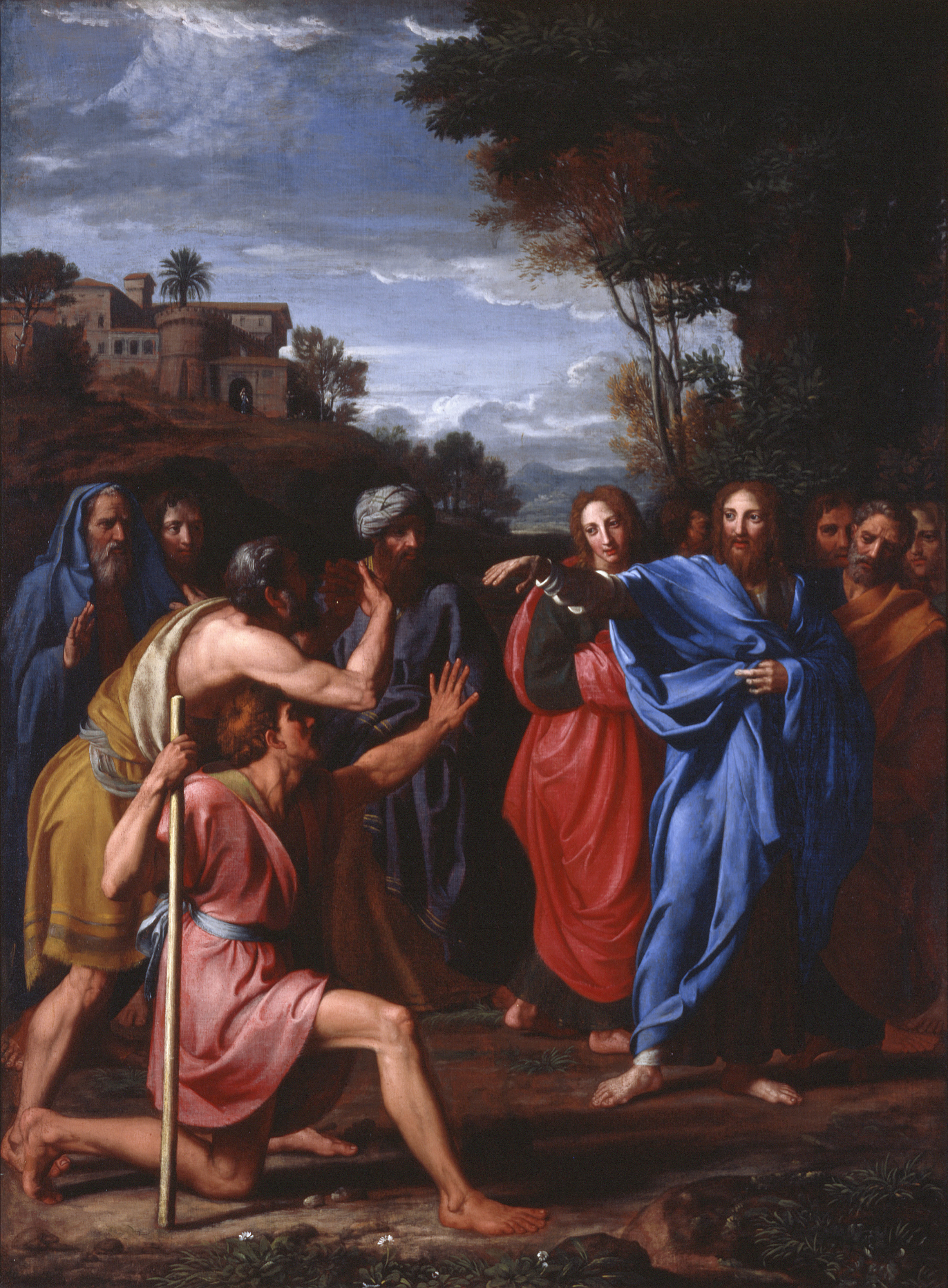Listen to Sermon
Pastor Tom Johnson, March 26, 2017
My advisor for the graduate program I was in a few years ago was born blind. We worked very closely together for four years. The very first time he introduced himself to us he gave us a list to help us better understand what it means to work with someone who is sight impaired: “Announce yourself when you approach me until I recognize your voice.” “When I ask a question in class, don’t just nod or smile but say, ‘Yes’ or ‘No.’” One day a student preached a sermon using the chalkboard. Even though it was not on his list of do’s and don’ts, he chastised that student like I’ve never witnessed before. Over the years he realized that he not only had to teach theology to his students but also teach empathy for someone who cannot see. One thing I remember him saying was that the healing of a blind man today is his favorite story in the Bible. Because it does not just document a miracle but teaches us to empathize as well.
Maybe you remember a few years ago when I went to the Dominican Republic. One ministry we visited is called “Amigos de Cristo”—“Christ’s friends.” It is a day school for children with developmental challenges. But it also has classes for parents to help them understand how to care for their children. Too often children are marginalized in that culture who have special needs. It is not uncommon for a child to spend each day hidden away in a dark room because their parents believe it is God’s curse and society’s shame for them to have such a child. The Dominican Republic’s government is now looking to this Christian ministry to better understand and serve all their people. The ministry of Jesus is still elevating people to receive the compassion and love they deserve and need.
“Who sinned?” We have. Anytime we look at another person with an eye of judgment. Anytime we hear part of a person’s story and quickly condemn them without listening to their whole story. Anytime we speak words that presume people deserve their difficultly—as if we have earned God’s good graces. “Who sinned?” We all have. “All of us like sheep have gone astray, each of us has turned to their own way” (Isa 53:6a). “All have sinned and fall short of the glory of God” (Rom 3:23). If God punished us and our children for our sins, I would not like to imagine how brief and tragic our lives would be. “God is good and gracious, slow to anger, and abounding in steadfast love.”
Jesus answers his disciples. “Neither this man nor his parents sinned; he was born blind so that God’s works might be revealed in him.” These are some of the most beautiful and hopeful words spoken. God is not punishing you with whatever challenge you are facing. Parents, it is not your fault that your children are having whatever difficulty they are having. You are fearfully and wonderfully made in the image of God. No missing sense or member of your body can rob you of that. It is not random misfortune or karma. You are not a mistake. You not living out some random tragedy. Parents, your children are exactly who God designed them to be. Jesus accepts the blindness of that man. He does not judge him or his parents.
God accepts you. He loves your children. He believes in a greater purpose. He talks about something only God can see—his plan for our lives. “That man was born blind so that God’s works will be revealed in him,” he says with a hopeful smile. God is doing something that no eye has seen, no ear has heard, nor heart imagined. Sure it is a miracle that Jesus will heal the man of his blindness. But the greater miracle of his story—the more beautiful works revealed in him is his faith and love for Jesus. “One thing I do know,” he says, “that though I was blind, now I see.” And the disciples see how Jesus liberates people with unnecessary shame and guilt. We all see how Jesus tenderly shows us our sin of pride and harsh judgment of others. And how he gives us something to believe in—someone to trust to use our difficulties to reveal the work of God.
God is doing something. It may be hidden from our sight. It may be out of earshot. It may almost be on the tip of our tongues. We may barely be able to get our minds wrapped around it. God has a plan. And it is good. “Who sinned?” We have all sinned. But thanks be to God for his mercy in sending his Son to die for our sins and be raised for our justification. Thanks be to God for his grace to know that he does not punish but forgive. And even more than that his grace is sufficient for us, “for,” he says, “my power is perfected in your weakness.” No matter what your challenge or difficulty may be, God’s works will be revealed in you and through you.
Word that caused blind eyes to see,
Speak and heal our mortal blindness;
Deaf we are: our healer be;
Loose our tongues to tell Your kindness.
Be our Word in pity spoken,
Heal the world, by sin now broken.
("Word of God, Come Down on Earth," v. 3 LSB 545)




